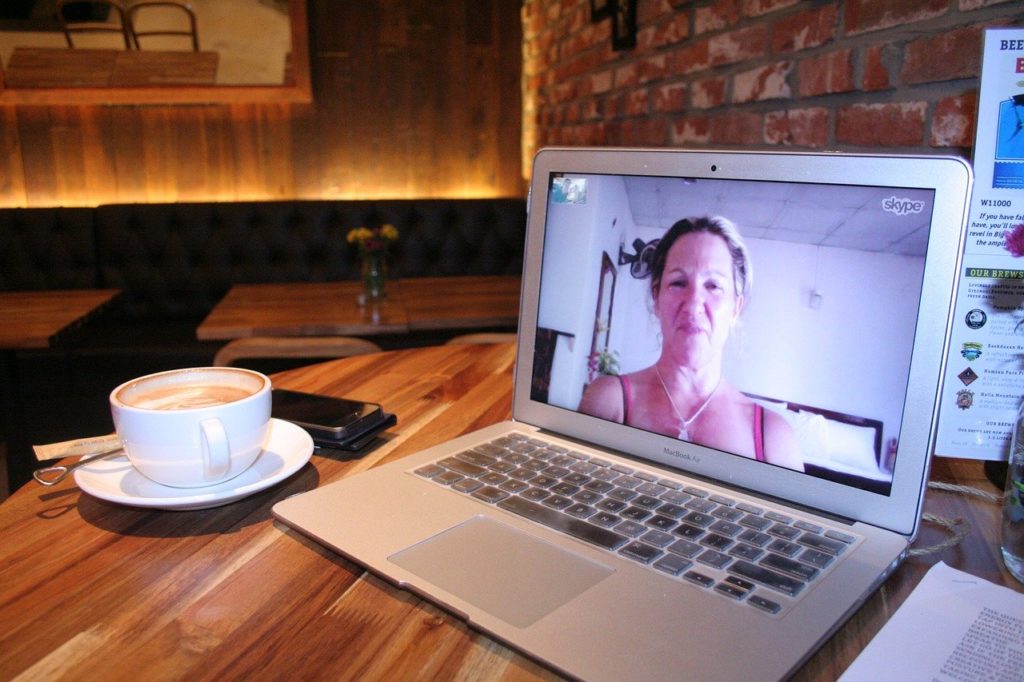3 Ways to Cope with the Biggest Challenges of your Work-From-Home Routine

Work looks a little different these days. Navigating your new remote life is not without its challenges. How do you make work-from-home work for you?

The new normal: You no longer have to put up with long, dreary commutes. You do not have to stay cooped up, working behind your designated desk in your stuffy office building all day. Work meetings are much more efficient and comfortable. Lunch consists of delicious home-cooked food (which no one can steal) and you now have the freedom to show up to work in whatever outfit you please.
On paper, working-from-home is fantastic. Yet, why do so many of us feel overwhelmed by the transition?
Not without its challenges
Granted, the perks of working-from-home are vast – but as with most things in life, if you are not adequately prepared to adapt to the changes, you may find yourself sinking beneath the weight of the downsides, real or perceived.
Identifying the major challenges that you may encounter and the steps you should take to overcome them can make all the difference in reducng your stress and anxiety levels.
What are some of these challenges?
1.Overworking
One might think that the lack of managerial oversight coupled with the seemingly inherent nature of human beings to be lazy would spell disaster when it comes to productivity. However, this could not be further from the truth.

In fact, as your personal and professional worlds collide, it might be harder than ever to untangle yourself from work obligations even after you have put in the hours for the day. And in the long run, not knowing when to stop and switch off work-mode can take a toll on you, mentally and physically. A sedentary lifestyle which comprises working for long stretches on your digital devices increases the risk of musculoskeletal disorders, eye strain and mental health issues, amongst other adverse health outcomes.
The solution? Get moving. Pencil in regular workout sessions daily – dedicate a space in your home for this if you can. A good exercise or yoga session is often just what the overworked mind needs to reset and recharge. If you can still get outdoors to go for a run or a brisk walk, your body and mind will benefit greatly from doing so. Just be sure to respect the social distancing guidelines established by your government. Consider doing this at times in which there might be fewer other people out and about.
Beyond this, draw a hard line between your personal and work life. During work hours, remember to take regular eye breaks; a 15-minute break every 2 hours of device use is recommended to protect yourself from digital eye strain.
Stick to your lunch-hour routine and eat healthy meals to fuel your body and mind for the rest of the day. And after the workday has ended, resist the pull of responding to work emails, messages and calls; make it a habit to turn off all your work gadgets – your computer, tablets, work notifications etc. I find the physical act of ‘switching off’ extremely effective in helping my transition to rest-mode.
2. Loneliness
We are inherently social creatures. Until recently, you might not have realised just how much of your daily socialisation is with your colleagues. During these long periods of isolation, the absence of watercooler moments, coffee breaks and office banter can naturally make you feel lonely.
What can you do to prevent developing cabin fever cooped up in your home?

Remote working does not mean you have to be iced out of your daily interactions with your colleagues. Beyond the daily Zoom or Skype meetings you may have, do not hesitate to have virtual meet ups with your colleagues for your daily communication about work or to even have ‘social breaks’ together.
Thanks to technology, the aforementioned watercooler moments, coffee breaks and office banter can still happen without interruptions – just virtually! But just remember that these virtual chats may contribute to your burden of excessive screen time, so try to have some of these conversations as just traditional audio calls to limit screen exposure.
3. Distractions
Unbeknownst to you, your home environment is rife with distractions. These can be anything from the TV to household chores, family members, social media and anything else you would otherwise be separated from while at the office.
Prioritization is a key solution to avoid this. It is so important to create a schedule with realistic deadlines and goals, and which also accounts for your day-to-day domestic responsibilities and breaks. Finding a routine that works for the new work environmentyou are in can be challenging and may require a little trial and error. Give yourself time to work through this.
If you live with other people, you may find their presence to be distracting. A tool that many people (and I count myself as one of them) find helpful for blocking out background noise and staying focused on the task at hand is to put on some music. Use this time to catch up on some new Spotify playlists or throw on some old records that have been collecting dust.
A winning method to stay on task is to create a workstation that is as comfortable as possible. Comfort entails making your space ergonomically optimised. This optimisation includes:
i) reducing overhead lighting and using anti-glare screens to reduce screen glare
ii) a screen location of 15 – 20 degrees below eye level
iii) adequate face-to-screen distance when using devices i.e. at least 60cm between the face and computer screens and 30cm when using smart devices.
iv) a chair that allows you to adjust various aspects including the height and angle of the backrest
v) keeping your wrists straight, your upper arms close to your body and your hands at, or slightly below the level of your elbows when typing
vi) minimising reaching for objects at your desk. If need be, stand up to reach anything that cannot be easily and comfortably reached while sitting down.
A new opportunity for growth
Take this period of time for the experience that it is, and as an opportunity to grow in all aspects – as a parent, spouse, friend and working adult. While the learning curve may be steep, the skills you will inevitably develop will stay with you for a lifetime. The biggest silver lining this period of isolation offers us is that it may be the best chance we get to master the ability to balance our mental and physical wellbeing, and our personal and professional lives.
Above all, let us remind ourselves that we’re all in this together. Pick up the phone, reach out to your friends and family and offer them words of encouragement and support. Support the doctors, medical staff and front-line workers who are working tirelessly by doing your part and staying safe and healthy at home.
We are alone together, and we will get through this as one.
Tools Designed for Healthier Eyes
Explore our specifically designed products and services backed by eye health professionals to help keep your children safe online and their eyes healthy.





